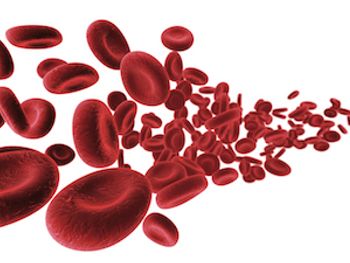
A new collaboration between PathoQuest and Memorial Sloan Kettering Cancer Center (MSK) will test the best method to identify microorganisms responsible for infections in patients with febrile neutropenia.
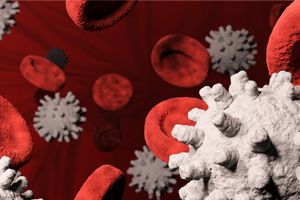
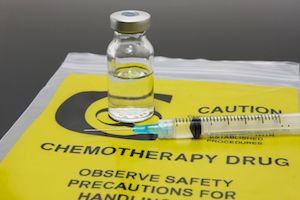
Determining the Risk of Chemotherapy-Induced Neutropenia to Guide Use of Colony-Stimulating Factors

Improving Timely Antibiotic Administration in Patients With Febrile Neutropenia

A new collaboration between PathoQuest and Memorial Sloan Kettering Cancer Center (MSK) will test the best method to identify microorganisms responsible for infections in patients with febrile neutropenia.

While it is known that febrile neutropenia is the most common reason for pediatric patients with cancer visiting the emergency department (ED), little had been known about the most common reasons for adult patients with cancer ending up in the ED.

In a pair of interviews, experts discuss neutropenia resulting from treatment of metastatic breast cancer with CDK4/6 inhibitors.
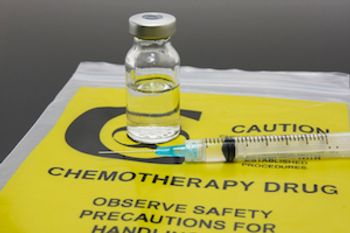
Strong chemotherapy may be part of the treatment plan for patients diagnosed with cancer, but it also comes with risks. A new campaign will empower patients with cancer to better understand and navigate risks such as febrile neutropenia that are associated with strong chemotherapy.
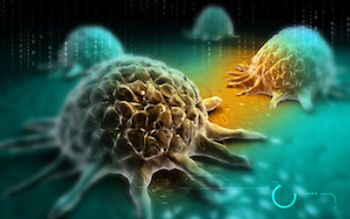
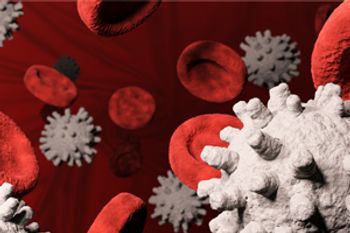
Researchers developed additional guidance for using granulocyte colony-stimulating factors to optimize pegfilgrastim use in clinical practices for patients at risk of chemotherapy-induced febrile neutropenia.

History of neutropenia with methotrexate, concurrent treatment with synthetic disease-modifying antirheumatic drugs (sDMARDs), and tocilizumab were risk factors for developing neutropenia while on biologic DMARDs (bDMARDs), according to a study published in The Journal of Rheumatology.

Although there is no scientific evidence that a specific diet reduces risk of infection in patients experiencing neutropenia, it is a common strategy in cancer care. Research presented at the 42nd Annual Congress of the Oncology Nursing Society determined that the popular neutropenic diet can be eliminated from practice.

Before treating certain patients, Daniel J. DeAngelo, MD, JD, of Harvard Medical School and the Dana-Farber Cancer Institute, will council them on the risk of developing neutropenia, which can result in hospitalization or even an intensive care stay.


A recent report, “Toxicology Cluster Chemotherapy Related Toxicity Drug Development Pipeline Review, 2017,” presents a summary of drugs in development to treat chemotherapy-related toxicities.

Individuals who develop neutropenia are at higher risk of infection, and they should understand the symptoms to look for that might mean they need to seek urgent medical care, explained Ruben A. Mesa, MD, of the Mayo Clinic.

After switching studies, research in patients with breast cancer receiving neoadjuvant myelosuppressive chemotherapy has found clinical equivalence between filgrastim and its biosimilar, according to results presented at the 2017 Annual Meeting of the American Society of Clinical Oncology.

Pharmacists play an integral role in enhancing transitions of care in patients undergoing cancer treatment through medication reconciliation, education, and post-discharge follow-up to ensure optimal, safe, and effective medication use.


A phase 3, randomized, double-blind registration study in patients with breast cancer receiving neoadjuvant myelosuppressive chemotherapy has found clinical equivalence between filgrastim and its biosimilar after switching studies.

By identifying ways to improve cancer care and then designing alternative payment models (APMs) to overcome current payment barriers, APMs can enable oncology practices to deliver better care to patients and save money for payers in a way that is financially sustainable for the practices.

Trial data on the use of plinabulin for mitigating chemotherapy-induced neutropenia with docetaxel will be presented as a poster at the American Society of Hematology’s annual meeting in San Diego.

A study published in the Annals of Oncology has analyzed data on young patients with acute lymphoblastic leukemia (ALL) to evaluate risk factors for febrile neutropenia and infection-related complications.

There is little patient benefit to using granulocyte colony-stimulating factor (G-CSF) to help white blood cell growth and reduce the risk of infection in women with breast cancer, according to a study published in Journal of Clinical Oncology.

Granulocyte-colony stimulating factors (G-CSFs) reduce the risk of febrile neutropenia in patients with cancer. This study evaluates the clinical and nonclinical value associated with G-CSFs.

In a series of interviews with MD Magazine, Yoav Golan, MD, MS, FIDSA, discussed some health risks for patients with acute myeloid leukemia who are experiencing neutropenia.

Using prophylaxis with biosimilar granulocyte colony-stimulating factor can reduce the severity of neutropenia in patients with soft tissue sarcoma.

Although daratumumab reduced the risk of disease progression and death for patients with multiple myeloma, the drug was associated with a higher rate of neutropenia.

Researchers assessed balugrastim’s efficacy, safety, and tolerability in 4 different clinical trials and found it to be a suitable alternative to pegfilgrastim in regard to reducing the mean duration of severe neutropenia.

259 Prospect Plains Rd, Bldg H
Cranbury, NJ 08512
© 2025 MJH Life Sciences®
All rights reserved.
